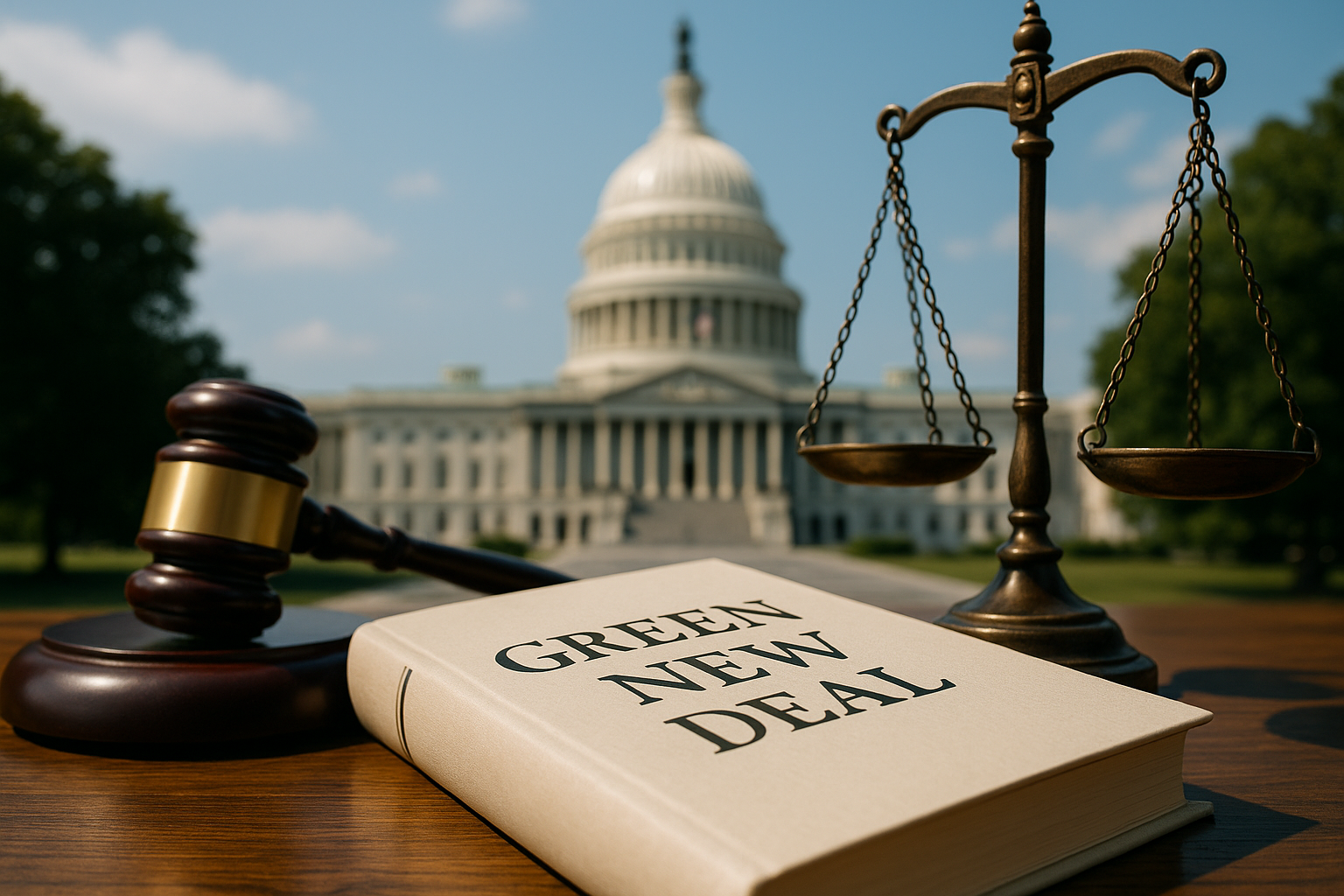Understanding the Legal Implications of the Green New Deal
Introduction: The Green New Deal, a proposed package of policy measures aiming to address climate change and economic inequality, has been a topic of substantial debate. But what are its legal implications? This article delves into the background and current developments of this policy proposal, analyzing its potential impact on society.

A Brief History of the Green New Deal
The Green New Deal is not a new concept. Its roots can be traced back to the New Deal, a series of social and economic programs implemented by President Franklin D. Roosevelt in the 1930s. The modern version, however, focuses on climate change and environmental justice. Proposed by Representative Alexandria Ocasio-Cortez and Senator Edward J. Markey in 2019, the Green New Deal is a non-binding resolution that outlines a series of ambitious goals, including transitioning the United States to 100% renewable, zero-emission energy sources.
Legal Foundations of the Green New Deal
The Green New Deal is not a law, but a resolution. Unlike a bill, it does not have the force of law. However, it sets the stage for future legislation. The legal underpinnings of the Green New Deal can be found in the government’s authority to regulate interstate commerce and to tax and spend for the general welfare, both granted by the Constitution.
Recent Developments and Legal Challenges
Since its introduction, the Green New Deal has faced opposition from various groups, including those who argue that it oversteps the government’s constitutional authority. Potential legal challenges could arise regarding the scope of the Commerce Clause, the Taxing and Spending Clause, and the Tenth Amendment, which reserves powers not delegated to the federal government to the states or to the people.
Implications and Impact on Society
If implemented, the Green New Deal could have profound legal and societal impacts. It could redefine the government’s role in the economy and environmental regulation. Moreover, it could result in significant changes in property rights, zoning laws, and the energy industry. However, these potential impacts are speculative, as the Green New Deal is still a proposal and not a law.
The Future of the Green New Deal
The legal implications of the Green New Deal will largely depend on how its provisions are translated into law. This process will undoubtedly involve extensive debate, negotiation, and potential legal challenges. As such, it is crucial for citizens to stay informed about this policy proposal and engage in the democratic process.
In conclusion, the Green New Deal is a significant proposal with potential wide-ranging implications. Understanding its legal foundations and potential impacts is crucial for anyone interested in environmental law and policy, as well as for citizens who wish to participate in informed debate about the future of our economy and environment.




